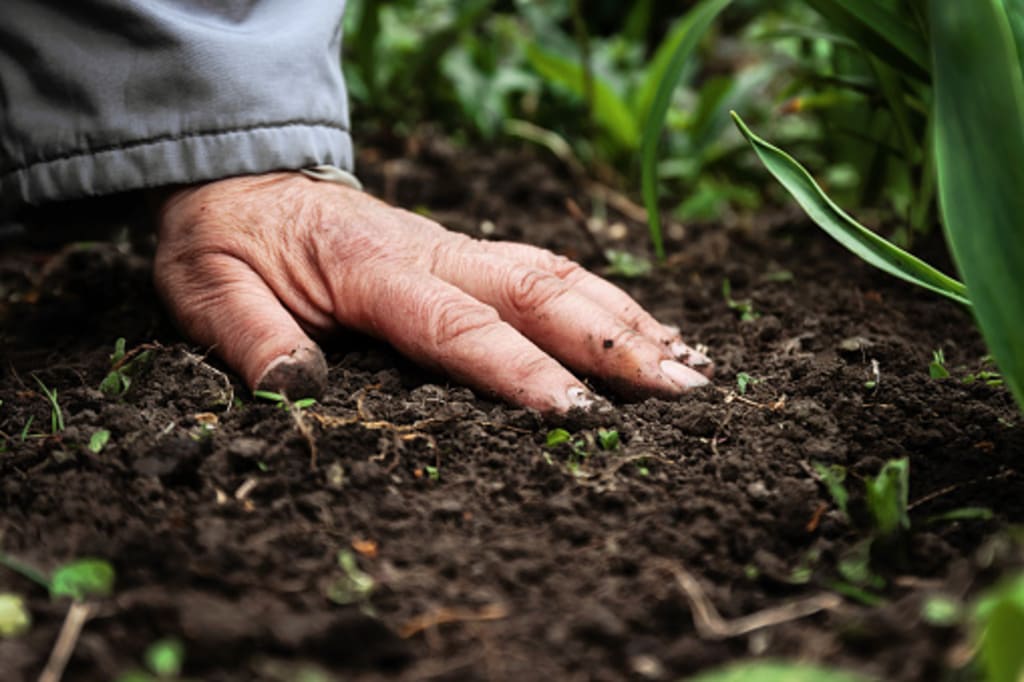The Natural Elixir for Plants and Soil
Jeevamrutham

Jeevamrutham is an organic fertilizer that is gaining popularity in agriculture due to its numerous benefits. It is made from cow dung, cow urine, jaggery, gram flour, and water. Jeevamrutham is known to improve soil fertility, increase crop yield, and enhance plant growth. It also helps in improving the soil's water retention capacity and reducing the dependence on chemical fertilizers, thereby promoting sustainable agriculture practices. Its use has been found to result in healthier crops with improved resistance to pests and diseases. Additionally, Jeevamrutham is cost-effective and easy to prepare, making it a popular choice among farmers.
Ingredients required
To prepare Jeevamrutham, you will need the following ingredients:
Cow dung: Fresh cow dung is the main ingredient of Jeevamrutham. It is rich in nutrients like nitrogen, phosphorus, and potassium, which are essential for plant growth.
Cow urine: Cow urine is another important ingredient of Jeevamrutham. It contains urea, uric acid, and other micronutrients that can help in improving soil health.
Dark-Brown suger: Brown suger, which is made from sugarcane juice, is used to provide a food source for the microorganisms that break down the cow dung and urine in Jeevamrutham.
Gram flour: Gram flour, also known as chickpea flour, is added to Jeevamrutham to provide a source of carbohydrates that can be used by microorganisms.
Chlorine-Free Water: Water is added to the mixture to create a solution that can be easily applied to plants. It is important to use clean, non-chlorinated water for preparing Jeevamrutham.
Preparation of Jeevamrutham
Here is a detailed step-by-step guide on how to prepare Jeevamrutham:
Step 1: Collect cow dung and cow urine in a container in the ratio of 1:3. For example, if you have 1 kg of cow dung, you need 3 liters of cow urine. Make sure to use fresh cow dung and urine.
Step 2: Add 50 grams of jaggery to the mixture and stir well. The jaggery will provide a food source for the microorganisms that will break down the cow dung and urine.
Step 3: In a separate container, mix 1 kg of gram flour with water to form a paste. The gram flour will provide a source of carbohydrates that can be used by the microorganisms.
Step 4: Add the gram flour paste to the cow dung and urine mixture and mix well. Make sure to mix thoroughly to ensure that all the ingredients are well combined.
Step 5: Cover the container with a lid and keep it in a shady place for 3-4 days, stirring the mixture once a day. Keep the container in a cool and shady place to avoid direct exposure to sunlight. Stirring the mixture once a day helps to ensure that the microorganisms are evenly distributed.
Step 6: After 3-4 days, the Jeevamrutham is ready to use. It will have a pleasant earthy smell and a brownish color. Strain the mixture using a muslin cloth or a sieve to remove any solids. Dilute the Jeevamrutham in water in the ratio of 1:10 (1 part Jeevamrutham and 10 parts water) and use it as a fertilizer for your plants.
Note: It is important to use Jeevamrutham within 24 hours of preparation to ensure maximum effectiveness.
Application of Jeevamrutham
Here is a detailed guide on how to apply Jeevamrutham:
Step 1: Dilute the Jeevamrutham in water in the ratio of 1:10 (1 part Jeevamrutham and 10 parts water). For example, if you have 1 liter of Jeevamrutham, you need to add 10 liters of water to dilute it.
Step 2: Use a watering can to apply the diluted Jeevamrutham to the soil around the base of plants. Avoid spraying the mixture on the leaves as it may cause burning. Apply the mixture in a circular motion around the plant base to ensure that the entire root zone is covered.
Step 3: Apply Jeevamrutham once every 15 days for optimal results. Overuse of Jeevamrutham can lead to excessive growth of foliage, so it is important to follow the recommended application frequency.
Step 4: Store any unused Jeevamrutham in a cool and shady place. It can be used for up to 24 hours after preparation, so make sure to use it within this time frame.
By following these steps, you can effectively use Jeevamrutham as an organic fertilizer for your plants.
In conclusion, Jeevamrutham is a highly beneficial organic fertilizer for plants in agriculture. It is made from natural ingredients such as cow dung, cow urine, jaggery, and gram flour, and is completely free from harmful chemicals. Jeevamrutham improves soil fertility, promotes healthy plant growth, increases yield, and helps to control pests and diseases.
By using Jeevamrutham, farmers can reduce their dependence on chemical fertilizers and pesticides, which can have harmful effects on the environment and human health. Moreover, Jeevamrutham is easy to prepare and apply, making it a cost-effective solution for farmers.
It is important to use fresh cow dung and cow urine, and to maintain a proper ratio of ingredients to achieve optimal results. With its numerous benefits and minimal environmental impact, Jeevamrutham is a highly recommended organic fertilizer for sustainable agriculture practices.
About the Creator
Sivakumar Micheal
Go Green Save the Earth
Let's make a different together
I'm a person concerned about the preservation and protection of the natural environment and works to promote sustainable practices and policies.






Comments
There are no comments for this story
Be the first to respond and start the conversation.